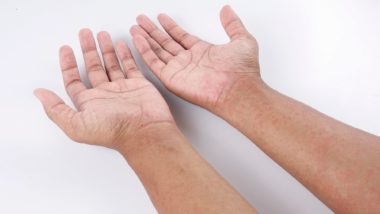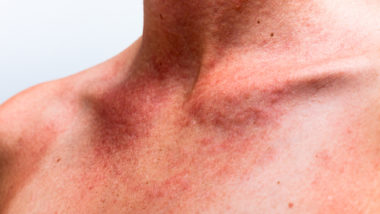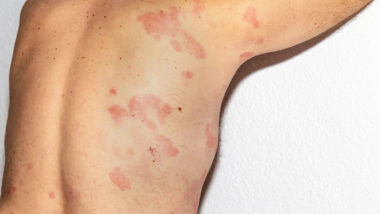Top Class Actions’s website and social media posts use affiliate links. If you make a purchase using such links, we may receive a commission, but it will not result in any additional charges to you. Please review our Affiliate Link Disclosure for more information.

New legislation signed into law by President Biden on April 23 that designates sesame as the ninth major food allergen — the first time an allergen has ever been added to the federal government’s list — will open up a whole new avenue for potential class action litigation.
Will it actually lead to more lawsuits against food manufacturers, though?
That depends, of course, on how well they comply with the new law.
The Food Allergy Safety, Treatment, Education and Research Act, or FASTER Act, was signed by the president on April 16, and will require all foods packaged with sesame to be labeled as such by Jan. 1, 2023. The law will also provide funding to expand research to find new treatments for those with sesame allergies.
There are eight major allergens food manufacturers have been required to label on foods since 2004: Peanuts, tree nuts, fish shellfish, soy, dairy, eggs and wheat. Sesame, though, has never been legally recognized as a food allergen until now.
Currently, sesame is often only noted on ingredient lists under vague labels like “natural flavoring” or names like “tahini,” which refers to a paste made from sesame, that may appear to an unsuspecting consumer to be unrelated.
Lawsuits are already known to pop up from time to time over improper labeling of existing food allergens on some foods. For example, a man sued Whole Foods at the end of last year over allegations that the company does not do enough to accurately identify allergens in its store brands.
But we will have to wait and see whether more lawsuits are filed regarding sesame once the labeling requirements are in full effect.
Martha Geer, a former North Carolina Court of Appeals judge and current senior counsel at Raleigh-based law firm Whitfield Bryson, told Top Class Actions she suspects there could be some elevated amounts of litigation after 2023 if food manufacturers are not diligent enough about labeling.
“People will assume that the labels are right, and so I think in some ways, if you don’t have manufacturers doing what they need to do, then people with sesame allergies are at a bigger risk, because they feel like they can rely on labels, so we may see some significant activity after January 2023.”
It will, of course, not just be class actions that companies have to worry about, she said.
“Individual liability cases might be more significant because now, the liability of a company is going to be clearer,” Geer said.
She pointed out, though, that it may not be too difficult for larger food manufacturers to root out sesame, as Illinois already passed legislation requiring it to be labeled on packaged foods in 2019, and some large manufacturers like Kraft Heinz, Tropicana and others are even based there.
“The hope is that there isn’t a big issue and that we aren’t having so many recalls and that the companies are able to implement,” Geer said, though she said smaller manufacturers may have more trouble complying.
Geer also suggested that it is a possibility that lawsuits could be filed against food manufacturers even before 2023 for not labeling sesame — granted, any such lawsuits would require some creative legal arguments, she said, but it is something that could happen.
“It will be interesting to see in the next couple years whether there are product liability cases, do you have creative plaintiffs lawyers coming up with theories using all of the publicity around this legislation to say ‘look, you knew this was a problem?’” Geer said. “I think it’s hard to come up with a theory that says ‘you knew this was a problem, you should have disclosed,’ when they aren’t required to until January, but there may be theories that could be used.
Geer also said there is one gray area for potential lawsuits: restaurants.
Neither the FASTER Act nor the Food Allergen Labeling and Consumer Protection Act of 2004, the law that begat the initial list of eight allergens, apply to prepared foods.
But restaurants are required to operate with an ordinary amount of care, and with the passage of the FASTER Act and the publicity surrounding the new law, potential plaintiffs could have an easier time arguing that restaurants should have been aware of the dangers of sesame to those with allergies.
“It’s gonna be much harder for anyone working with food to say, ‘I didn’t know about sesame,’” Geer said. “I think, certainly, the public information now out there about the risk of sesame may create more liability than there was before.
She did say, though, that a wave of lawsuits in the absence of provable damages is unlikely.
“You have to allege in the complaint that had you known it in fact contained sesame, you would not have bought it or you would have paid less for it,” she said. “That’s what the allegation would be.”
Anything short of that would probably be dismissed, she said.
Deborah Hensler, an associate dean emerita and dispute resolution professor at Stanford Law School, agreed on that front – it’s just hard to get money in a lawsuit over food mislabeling without proving some kind of damages, she said in an interview with Top Class Actions.
“I don’t think those cases would be likely to succeed, except in the instance where in fact there were plaintiffs who were becoming injured, because … the courts have been quite strict in saying you need to have had an injury,” Hensler said. “This doesn’t strike me as being the kind of case that is likely to produce a wave of litigation, and if lawyers who bring class actions in this space have a similar analysis, they won’t invest in those cases and so we won’t see them.”
Of course, Hensler said there is always the possibility that lawyers will, for one reason or another, try to file lawsuits over sesame whether they believe they will be ultimately successful or not. It wouldn’t be the first time something like that has happened, she said.
“Apparently, there is a single law firm that has made a practice over the past several years of bringing cases against products that include vanilla,” she said.
Hensler is referring to Spencer Sheehan, a lawyer who has filed more than 100 potential class action lawsuits since 2019 alleging improper labeling of vanilla products — namely, whether a product has been made with actual vanilla extract or with artificial flavoring.
Most of Sheehan’s cases have been unsuccessful, but that has not necessarily stopped him from filing them.
“(The cases) certainly sounded like real outliers to me, and I gather they have been rejected by the courts,” Hensler said, “but that law firm seems to think that at some point those vanilla suits are going to turn out to be successful, so maybe there will be a similar sesame plaintiff class action warrior and I will be proved wrong.”
In short, without a crystal ball, there is only one thing that will actually be able to reveal the full implications of sesame’s new legal status as a major food allergen: time.













PLEASE ADD ME
I just found out I’m allergic to Sesame seeds among many other things. I’m 51 yo. I’m finding that these get cross contaminant and in many foods.